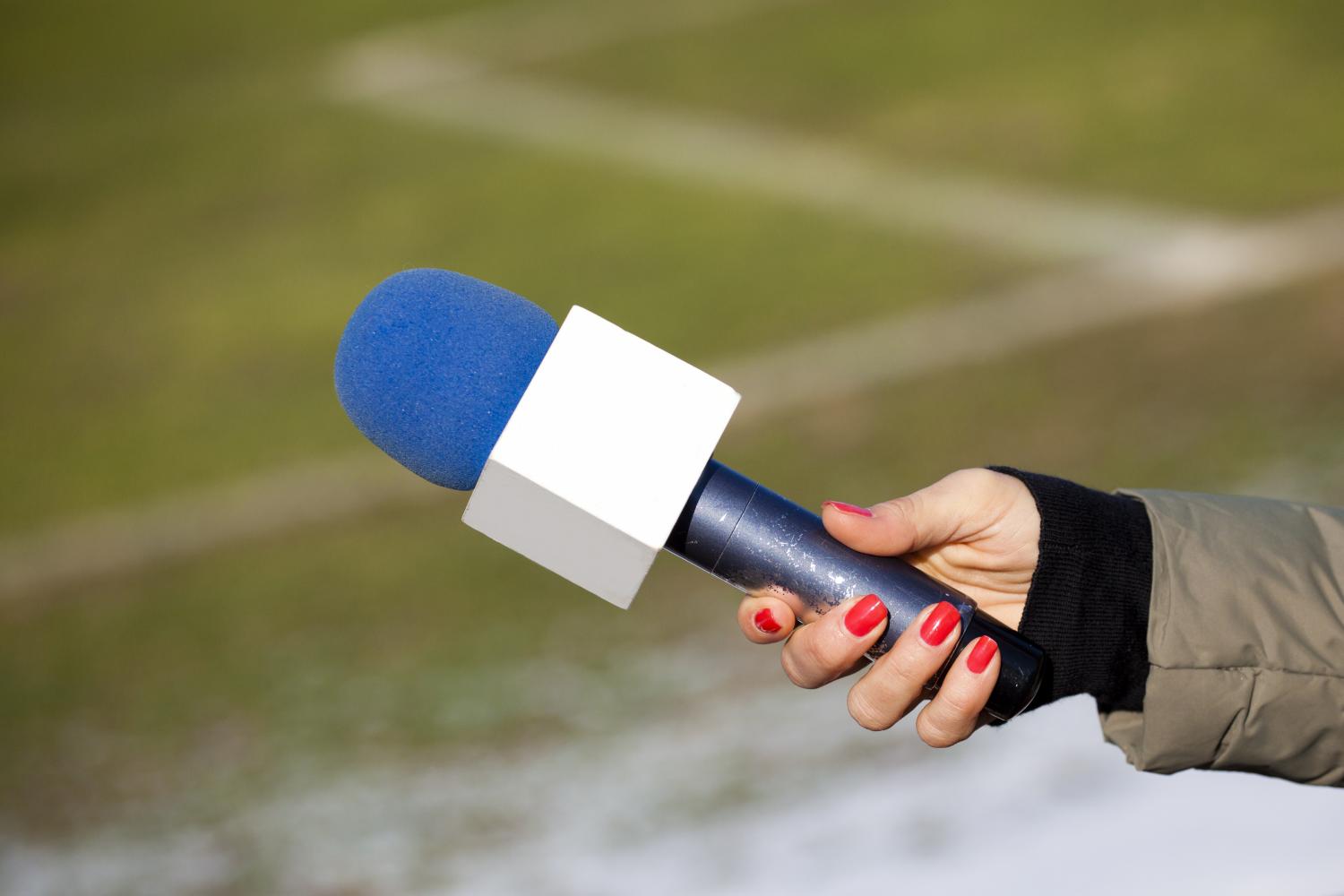Integrity over Physique: Women In Sports Journalism
Published: September 13, 2017
As a female intending to enter the field of sports media, it’s frustrating to see two out of the four top Google results for “female sports reporter” are rankings of the “hottest” women in the profession. And though this is disappointing, it is not all that shocking.
When researching the concept of women in sports journalism you come across two main categories: objectification and vulgarity. Either you immediately find “best bod list” or can’t get through an entire sentence without stumbling across the “c” word.
One root of this problem is the United States, as a country, thinking we are more progressive than we actually are. It wasn’t until 1978 that female reporters were even allowed to be in locker rooms for interviews before and after games, and it took a trip through the courts system to get there. Laws can change, gender norms and social attitudes typically don’t. Yes, these post game interviews are now legal, but there is still an overwhelming number of documented cases of sexual harassment while these women are simply trying to do their jobs. It wasn’t until three years ago that a female journalist (Meredith Vieira) hosted the Olympic sports coverage, a job for which she was the 3rd pick, filling in. This doesn’t exactly scream, “progressive society.” Seeing that female reporters are no longer legally discriminated against gives a false sense of progressiveness in the world of sports journalism, which allows the issue to be overlooked.
The few successful women sports reporters (Jackie MacMullan, Sally Jenkins, Judy Battista and Doris Burke come to mind) are highly celebrated for breaking into a male dominated profession. In March, when ESPN announced that Samantha Ponder would be taking over “Sunday NFL Countdown”, there was major buzz. N0t because of her personal accomplishment, but because she was the first woman to accomplish it in the 32 years of the show’s existence.
But, it’s not really equality until it’s common enough that we no longer feel the need to celebrate it.
If we celebrated every time a male sports journalist successfully conducted an interview without athletes dropping towels there would be no time left to write the stories. It’s not really equality until the phrase “good for her” no longer makes sense. And it’s not really equality until this article is no longer necessary.
According to an Associated Press sports editor study women make up just under 10% of all sports journalists with their male counterparts filling out the other 90%. This lack of representation makes the idea of having a large population of female sports journalists in the future nearly impossible. Little girls want to be ballerinas because they see their role models and idols doing it. No little girl wants to play “man in blazer behind a desk.” Even throughout high school and college, girls are rarely being actively recruited by any sports journalism department or organization.
On top of all of this, there is the harassment from athletes, colleagues (many documented cases of both) and the general public from social media. It is a common known fact that people are more likely to make vulgar comments when they are protected by their phone screen, it is likely to happen in response to this article, and is even more likely to happen when the target of the comments has yet to be humanized. Seeing reporters on the screen and reading their stories gives journalists an almost inhuman quality. We do not automatically consider them to have feelings or a life outside of what we see behind a news desk or article. We see a reporter, not a human being. People react a lot differently when the subject of their comments is making eye contact with them. This can be seen in a social experiment conducted by two women in sports journalism:
https://www.youtube.com/watch?v=CEfjTfYlFpc
It is a challenge to do your job successfully when you are being attacked solely for your gender. This means female journalists have to work harder than their male counterparts to receive the same outcome. These women have no lack of talent and dedication, but cannot make a name for themselves in the industry simply because they are not on the hottest women in journalism articles.
As a senior, I have spent my years of high school journalism being either the only or one of two girls on the sports report team. I have also spent these years typically being offered stories like girls’ soccer, and never stories like football. Being able to make a statement about professional sports without having my opinions questioned would be a miracle, and when my mom’s friends ask about my career path I never specify past “mass communications” in fear of receiving the notorious concerned stare. And though it is only high school and seems dramatic, it sets a precedent for the real world. On any scale, assumptions will be made on your strengths and interests solely based on your gender.
The worst part about all of it is that it isn’t news to us. It seems like a typical thing to happen. It’s not hard hitting, not shocking and doesn’t even really make you think twice. Female sports journalists are critiqued on their outfit choices and physique more than on the information they are presenting. The score of the game will be the same, whether or not the person reporting it to you is wearing lipstick, and it is taking way too long for everyone to realize it.










![It's Time for the BOE to Respect Student Input [Editorial]](https://FHNtoday.com/wp-content/uploads/2024/11/Untitled_Artwork-1-300x173.png)


